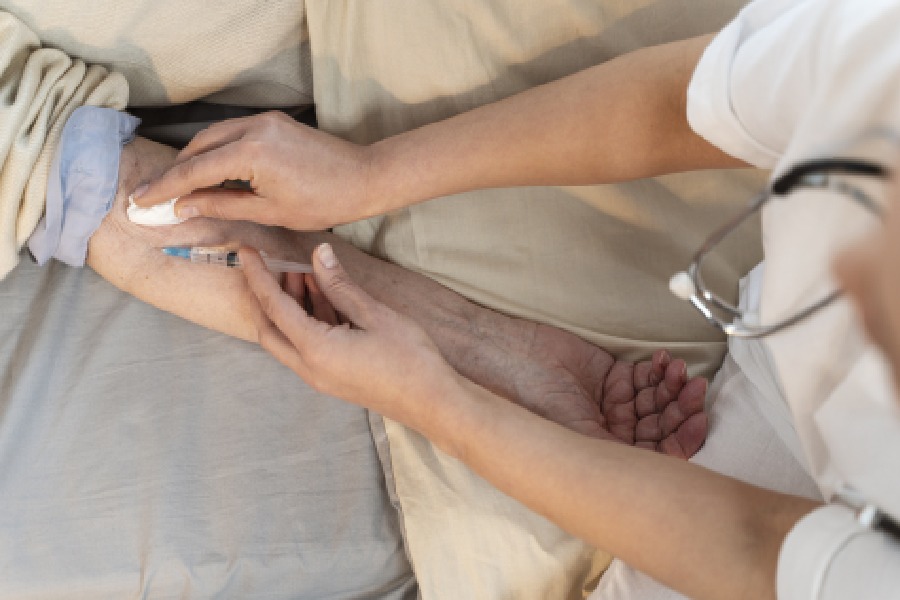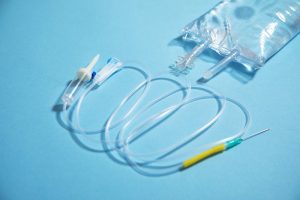Intravenous therapy has recently become a very popular way to deliver the necessary nutrients, vitamins, and minerals. But as is the case with many therapies, IV therapy may cause side effects such as discomfort and stomach pain. So, can IV therapy cause diarrhea and similar gastrointestinal disorders?
Stay with us as we analyze the relationship between IV therapy and diarrhea. We will also review the factors contributing to this side effect and the types of IV solutions used to manage this problem successfully.
Can IV Therapy Cause Diarrhea?
In some cases, yes, after receiving IV therapy, you may experience diarrhea. Although IV therapy is known to offer numerous benefits, side effects should not be overlooked.
Diarrhea and other gastrointestinal problems may occur after administering such therapy. Even though this issue is extremely rare, it depends on several factors. For example, the patient’s age, current health status, and medical history are just some things to consider.
Conversely, IV therapy may help resolve problems related to diarrhea. However, additional clinical trials are needed to determine in more detail the positive and negative effects of IV treatment on gastrointestinal problems.

Factors That May Contribute to Diarrhea During IV Therapy
Several factors may contribute to the development of diarrhea during IV therapy. Knowing them is crucial for healthcare providers to successfully manage the therapy. Such factors are related to:
Fluid volume overload
Can too much IV fluids cause diarrhea? One factor contributing to diarrhea is the rapid administration of IV fluids, where the body does not have enough capacity to absorb and process the fluids, which may lead to increased blood volume. In such situations, when there is an increased volume of fluids, the body may try to eliminate the excess, eventually leading to diarrhea.
Electrolyte imbalances
Electrolyte imbalance can occur if therapy is not administered correctly or if the electrolyte levels in IV fluids, such as potassium or magnesium, are not properly managed. Therefore, you should choose a licensed and experienced healthcare provider to avoid potential complications before opting for this type of therapy.
Medication interactions
Some drugs administered through the intravenous route may cause gastrointestinal side effects. Namely, these drugs may act on the intestinal microflora and disrupt the balance of intestinal bacteria, leading to diarrhea.
In addition, diarrhea may happen if many medications, such as antibiotics, are administered. Although such IV fluids are usually administered in a hospital setting, gastrointestinal problems that require careful healthcare provider monitoring may emerge.

Treatment Options for Diarrhea Caused by IV Therapy
Although, in some cases, IV therapy may cause diarrhea, this therapy may also serve as a treatment choice. Therefore, in the following text, you will be presented with several options that may help deal with diarrhea and gastrointestinal problems:
Rehydration
It is a well-known fact that diarrhea results in dehydration due to a large loss of fluids from the body. For this purpose, IV therapy is an excellent opportunity to restore lost electrolytes and fluids.
Such therapy may contain a combination of several elements, such as saline, dextrose, and electrolytes, that can effectively replenish the body’s fluids. Because of its direct administration into the bloodstream, saline may quickly rehydrate the body and provide the necessary nutrients lost due to diarrhea.
IV therapy may also help with accompanying symptoms of diarrhea, such as cramps, headache, and vomiting. By selecting the appropriate ingredients in the IV fluid, this therapy may allow the necessary nutrients to remain intact in the body.
Diet plan
One of the ways to successfully deal with diarrhea is changes in the patient’s diet. Namely, in patients who have diarrhea as a result of IV therapy, the healthcare provider may recommend dietary changes to reduce gastrointestinal tract irritation. Therefore, patients may be advised to eat foods that are low in fiber and avoid fatty foods and nuts during recovery.
Some patients may also be administered a probiotic to rebalance the intestinal microflora and beneficial bacteria. Thus, the diarrhea may be alleviated, and the recovery process may begin.
Supportive care
Monitoring the patient’s health status is the key to successfully managing the diarrhea-related problem. For this purpose, the healthcare provider should carefully monitor the patient’s electrolyte levels, diarrheic stools type, and fluid balance. In this way, adjusting the interventions according to the patient’s response will be easier.
Besides follow-up, the health care provider should emphasize to the patient the importance of hydration, adherence to prescribed medications, and diet modification.
If the condition worsens or the measures taken do not work, specialists such as infectious disease specialists or gastroenterologists may need to be involved for further evaluation.

Conclusion
Can IV therapy cause diarrhea? Is there room for concern? Diarrhea as a result of IV therapy is quite rare and usually due to electrolyte imbalances, medication interactions, or fluid volume overload.
The successful management of this complication includes more measures such as timely monitoring of the patient, selection of appropriate IV fluids, and education of the patient about the diet, intake of sufficient amounts of fluids, and intake of the necessary medications. However, the best measure you can take to prevent these side effects is to choose a licensed healthcare professional.



